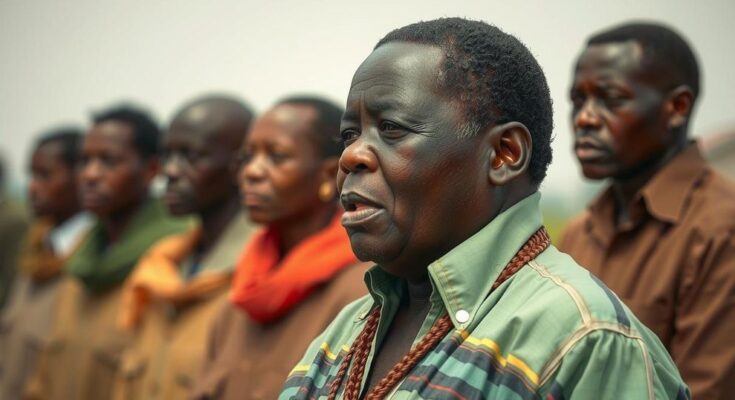The Biden administration has the chance to reshape South Sudan’s troubled future by imposing network-based sanctions on President Salva Kiir and his corrupt regime. Despite previous hopes during its inception in 2011, South Sudan has faced severe corruption and violence, obstructing democratic progress. Targeting Kiir directly through sanctions could dismantle the kleptocratic system, supporting the population’s aspirations for accountable governance and peace.
The Biden administration possesses a critical opportunity to influence the future of South Sudan, a nation that continues to struggle with systemic corruption and violence stemming from its ruling elite. Key Biden officials, including Secretary of State Antony Blinken and National Security Advisor Jake Sullivan, were involved in South Sudan’s inception in 2011, yet the country has faced dire challenges since descending into civil war. It is imperative that the U.S. and its allies impose targeted network-based sanctions on President Salva Kiir and his corrupt administration to dismantle the kleptocratic system that hinders democratic progress.
Since gaining independence, South Sudan has exhibited a disturbing trend where governance is synonymous with oppression and exploitation, preventing the establishment of a functional democracy. Kiir’s regime, defined by corruption and violence, has repeatedly postponed elections and restricted civic freedoms through oppressive legislation, thereby solidifying its grasp on power. The proposed sanctions aim not only to hold current officials accountable but to initiate a significant shift in governance that prioritizes the citizens’ rights and welfare. These measures would target Kiir and his network directly, rather than peripheral officials, thereby pressuring those fundamentally responsible for the state’s turmoil.
The international community’s reliance on the possibility of elections as a solution to South Sudan’s problems has proven futile. The 2018 peace agreement between Kiir and opposition leader Riek Machar has been ineffectively implemented, as the regime has consistently delayed elections while obstructing essential reforms. Consequently, the conditions for a more democratic environment remain unattainable without significant intervention.
Adopting a new strategy that leverages financial deterrents and sanctions can potentially unravel the kleptocratic system that has benefitted a small elite at the expense of the vast majority. The mechanisms already in place through the Financial Action Task Force and the European Union provide an avenue for increased scrutiny and regulatory pressure aimed at curtailing the government’s corrupt practices. Previous sanctions have demonstrated effectiveness; therefore, a concerted international effort to impose stringent financial consequences could lead to eventual reforms and accountability for the South Sudanese populace.
Ultimately, South Sudan’s governance crisis necessitates immediate action from the Biden administration and its allies. By implementing targeted network sanctions against President Kiir and his inner circle, a path towards a just and accountable government can emerge, which may fulfill the aspirations of the South Sudanese people for peace and democracy. The time for action is critical, as it addresses not only the kleptocracy but also the urgent need for a sustainable political resolution in a country long deprived of hope.
The article discusses the ongoing challenges facing South Sudan, the world’s youngest nation, which has been marred by corruption and violence since gaining independence in 2011. Despite hope during its formation, the country quickly fell into chaos marked by a civil war in 2013 and continued issues stifling democracy and governance. The administration of President Salva Kiir is steeped in kleptocracy, obstructing peace efforts and delaying essential elections. Amidst this dire situation, the Biden administration has the opportunity to influence change through targeted sanctions against key figures in the South Sudanese regime, reinforcing the need for accountability and democratic governance.
In conclusion, the situation in South Sudan remains critical, with ongoing corruption and oppression preventing democratic reforms and peace. The Biden administration, through the imposition of comprehensive network-based sanctions targeting President Salva Kiir and his regime, has the chance to initiate significant change. This approach would not only hold the regime accountable for its actions but also support the aspirations of the South Sudanese people for a government that prioritizes their needs and rights. The U.S. must act swiftly and decisively to redirect the future of this beleaguered nation towards stability and democratic governance.
Original Source: www.justsecurity.org




